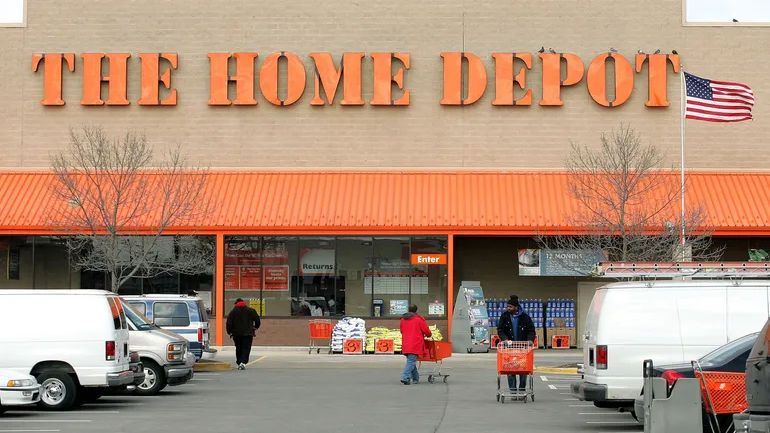
Home Depot leads in diversity and inclusion amidst challenges in the market

Amidst challenges facing diversity, equity, and inclusion efforts, Home Depot emerges as a top brand in fostering inclusivity. Despite recent criticisms, marketers are making strides in eliminating stereotypes from ads and building stronger consumer trust, as revealed in a recent AIMM report.
Top Inclusive Marketers of 2023
The Home Depot was named the most inclusive marketer of 2023, with Unilever's Dove and nonprofit the Ad Council following closely behind, as revealed in a report by the Alliance for Inclusive and Multicultural Marketing (AIMM) in partnership with the Cultural Inclusion Accelerator (CIA).
The home improvement retailer ranked second in ad-effectiveness, following Lysol and preceding Procter & Gamble's Tide in the report. AIMM used CIA's measurement methodology to study numerous ads from 120 brands and gather feedback from over 80,000 consumers.
The findings highlight the importance of diversity, equity, and inclusion (DEI) strategies, especially amidst current debates in the U.S. Despite the scrutiny, authentic DEI efforts can still resonate with various demographics. Brands that are perceived positively in terms of DEI can experience a five-fold increase in purchase intent and build stronger trust, as per AIMM.
Article Insight:
AIMM's research focuses on recognizing brands that excel in DEI-minded marketing. As a division of the Association of National Advertisers trade body, AIMM emphasizes the importance of a comprehensive approach to inclusion. They highlight how this approach can not only build loyalty among different demographics but also lead to higher sales. This emphasis on DEI comes at a time when marketers face criticism for campaigns that promote diversity, which has had a negative impact on the industry.
The Home Depot was recognized as the most overall inclusive marketer of 2023. Their recent ads, which were first shown in December, demonstrate how the company is combining a purpose-driven message with its core home improvement business. The commercials feature a diverse group of people pursuing trade jobs to help address the growing labor shortage in the industry.
Unilever’s Dove also received high marks for its efforts as a personal care brand. Dove tackled complex issues such as the negative impact of social media on children's self-esteem and the decline in participation of teenage girls in sports due to lack of confidence.
Among specific consumer segments, certain brands stood out. McDonald’s was particularly popular among Asian consumers, while Converse resonated strongly with LGBTQ audiences. Dove was the preferred choice for both Black and disabled consumers, according to AIMM.
AIMM’s assessment was based on the CIA’s Cultural Insights Impact Measure. This methodology connects positive DEI representations in advertisements to the potential to increase sales. According to the report, brands that excelled in inclusion saw a 69% growth in purchase intent and a 49% increase in affinity.
The topic of DEI has become a battleground in the culture wars, causing some companies to slow down their efforts towards inclusion. This backlash, a shift from previous years of progress in DEI, has affected the diversity of marketing teams and the willingness of brands to engage in discussions about race and identity in their campaigns.
Marketers are showing improvement in their work overall. According to research by AIMM and CIA, last year, 55% of consumers noticed stereotypes in ads, a decrease from 63% in 2022. The survey also revealed that 38% of participants thought brands accurately represented their culture, an increase from 31% two years ago. Additionally, 36% of consumers now trust most or all brands, compared to 26% in 2022.
Editor's P/S:
The article on inclusive marketing highlights the importance of diversity, equity, and inclusion (DEI) in brand messaging. It showcases the positive impact that authentic DEI efforts can have on brand perception and sales, even amidst societal debates. The recognition of The Home Depot, Unilever's Dove, and the Ad Council for their inclusive marketing campaigns is a testament to the growing significance of DEI in the industry.
While the article acknowledges the challenges faced by marketers due to criticism and backlash, it also emphasizes the progress made in terms of representation and cultural sensitivity. The findings from the Alliance for Inclusive and Multicultural Marketing (AIMM) and the Cultural Inclusion Accelerator (CIA) indicate that consumers are increasingly noticing and appreciating DEI in advertising. This shift in consumer sentiment highlights the need for brands to prioritize inclusivity in their marketing efforts, not only for ethical reasons but also for business success.










